 The Rann of Kutch - trying to capture the vastness of it!
The Rann of Kutch - trying to capture the vastness of it!
Calling it beautiful wouldn’t be right. The Rann doesn’t match the stark and harsh beauty of the deserts of Ladakh or the soft undulating curves that one imagines a picture perfect desert. But there was something about being in this dry, near barren, expansive, and literally ‘no-man’ land.
A friend reminded me of the story, 'Love Across the Salt Desert'. How could i have forgotten the love story set in the heart of this place. The author describes it beautifully... The monsoons had, so to speak, forgotten to land. The Rann lay like a paralysed monster, its back covered with scab and scar-tissue and dried blister-skin. The earth had cracked and it looked as if chunks of it had been baked in a kiln and then embedded in the soil-crust. Then one day the clouds rolled in like wineskins and the lightning crackled and the wineskins burst. Though two years have passed since the drought ended, everyone remembers that it first rained on the day when Fatimah entered the village. This is how she came...
 The Rann in perspective
The Rann in perspective
During monsoons, the Rann of Kutch is flooded with water, being at a very low-height to the sea. The Rann becomes accessible only in the drier seasons, and even then may be not entirely. The jeeps that venture inside could easily get stuck, as the dry top level hides beneath it soft and mushy clayey soil layers. There are no well defined roads or trails. Yes, there were jeep tracks from visits before us, but how our driver found his way through and how the other locals find their way to the salt pans was beyond our grasp. The desert is also broken by several salt pans were locals make salt from the ground. Coming back after watching the sunset, I kept asking our driver if he could find his way back.
 Getting directions from a local chakkada
Getting directions from a local chakkada
 The quintessential dirt driving jeef safari picture
The quintessential dirt driving jeef safari picture

Our visit was actually to the part of the desert known as the lesser Rann, which lays a little interior to the area called as the Rann. The Lesser Rann is home to the ‘Wild Ass’ also called Khar (ye ye, I see you laughing, and btw did you know that Jack Ass is also a variety?), the Nilgai Antelope and Chinkara deers. On our safari on the first evening we saw glorious herd of both the wild ass and Nilgai. We didn’t realize how nice our sightings were until the next day, when for quite a long time we saw only loners or pairs. The Rann is also famous for migrating flamingos, visitors from Siberia.
 A herd of Nilgai antelopes
A herd of Nilgai antelopes
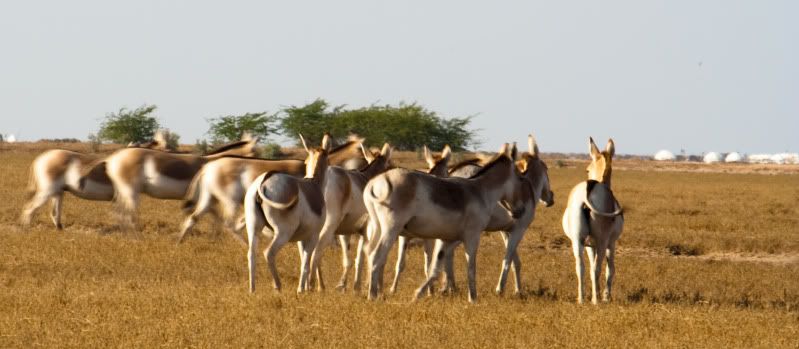 A herd of Wild Ass
A herd of Wild Ass
 Cranes taking flight
Cranes taking flight

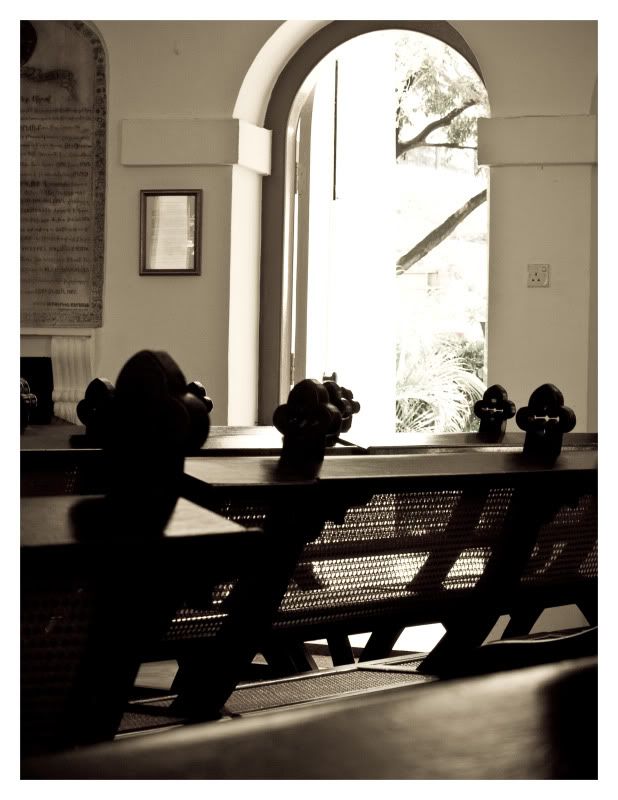 Inside the Armenian church
Inside the Armenian church 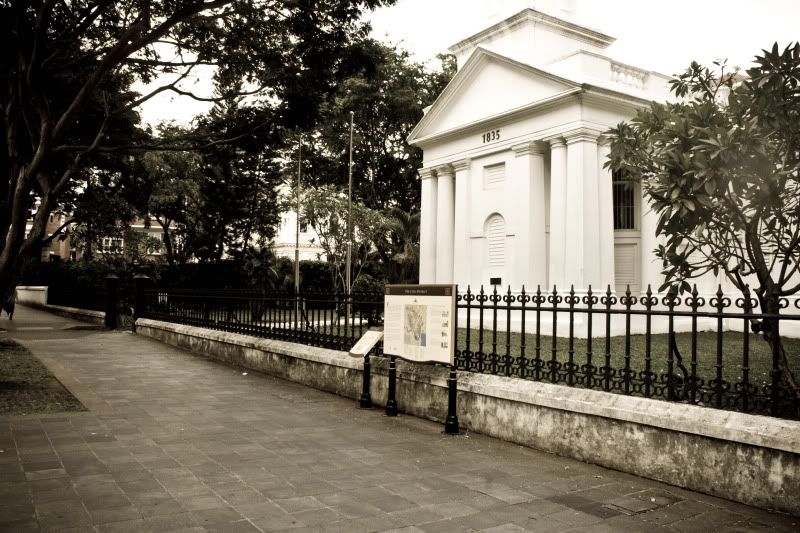 The Armenian church
The Armenian church 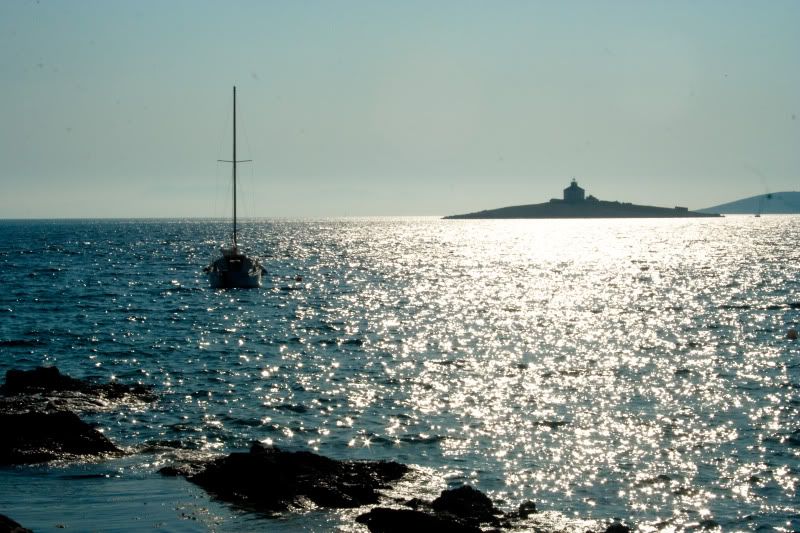 Another secluded beach in Hvar as I don't have photos of Mustacho
Another secluded beach in Hvar as I don't have photos of Mustacho 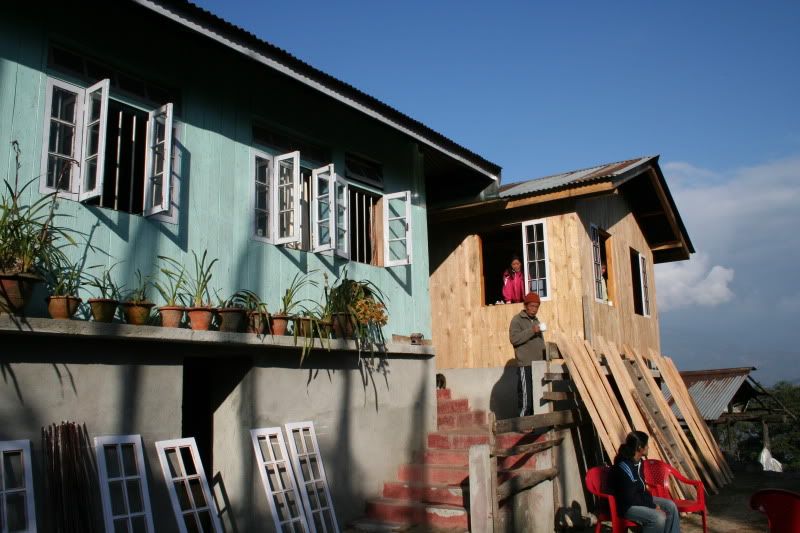 The house we stayed in, Kewzing
The house we stayed in, Kewzing 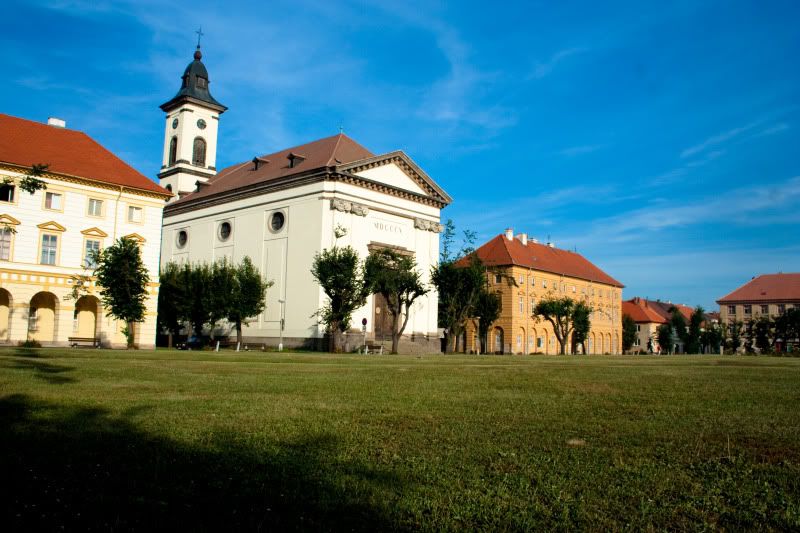 The town of Terezin
The town of Terezin 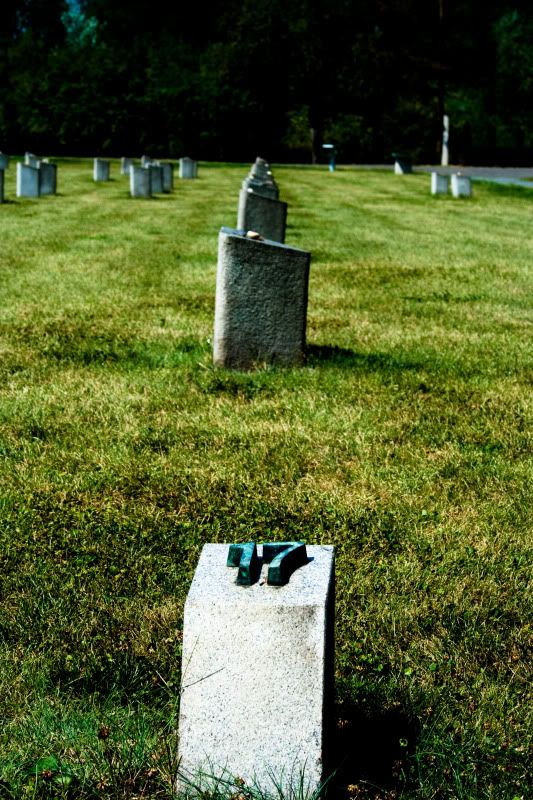 Gravestones
Gravestones 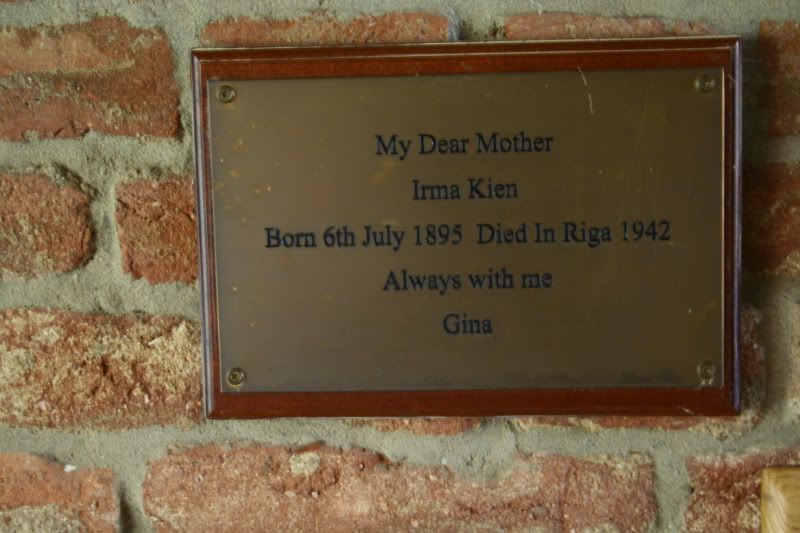 In memory
In memory 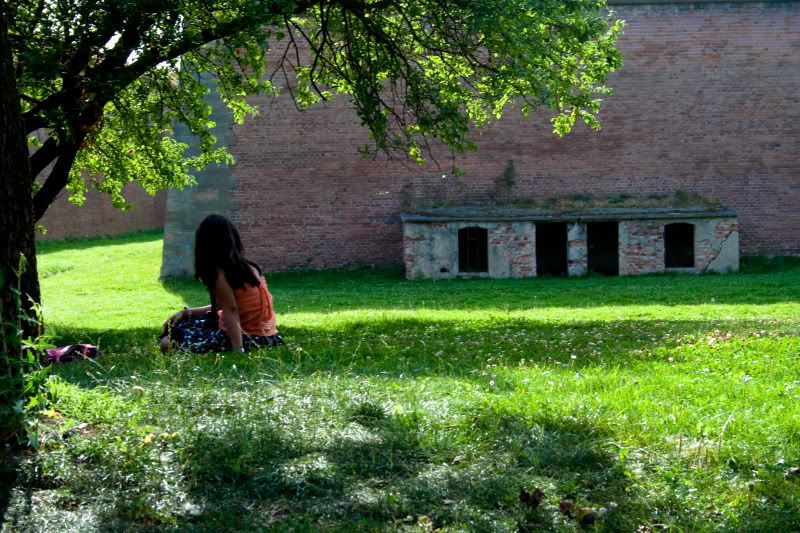 Inside the Little Fortress used to jail prisoners of war
Inside the Little Fortress used to jail prisoners of war 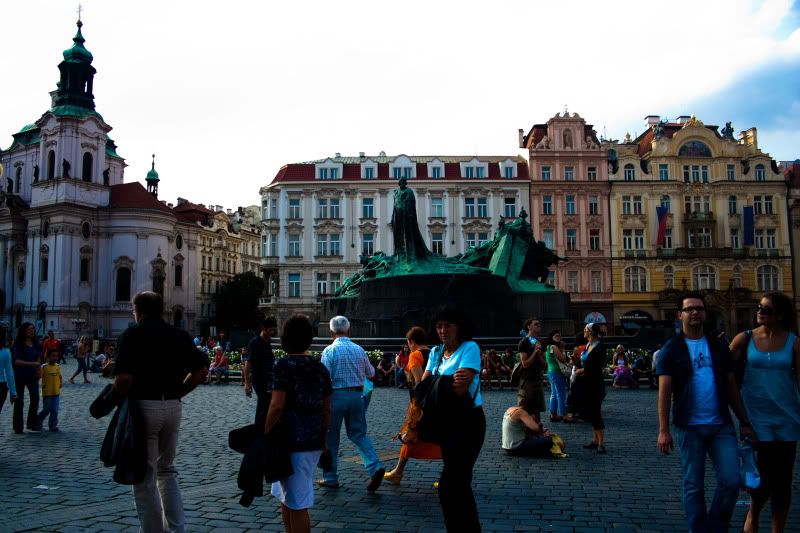 Prague Old Town Square
Prague Old Town Square 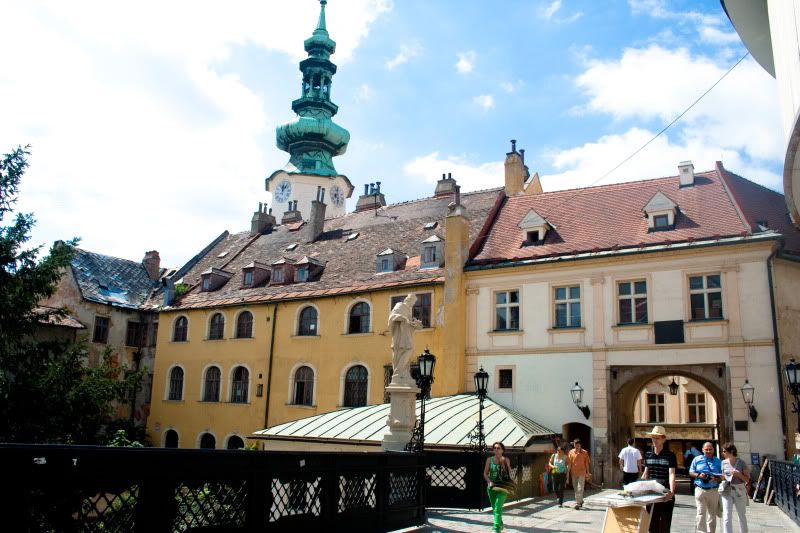 A small bridge in Bratislava Old Town
A small bridge in Bratislava Old Town 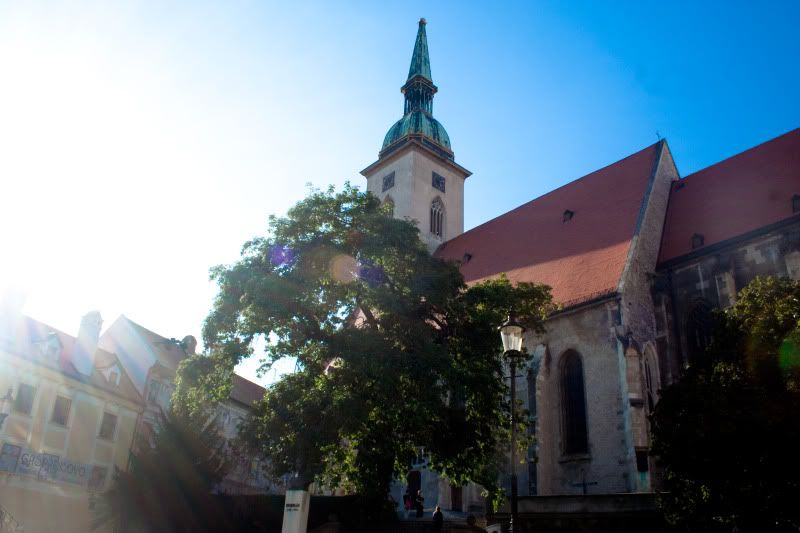
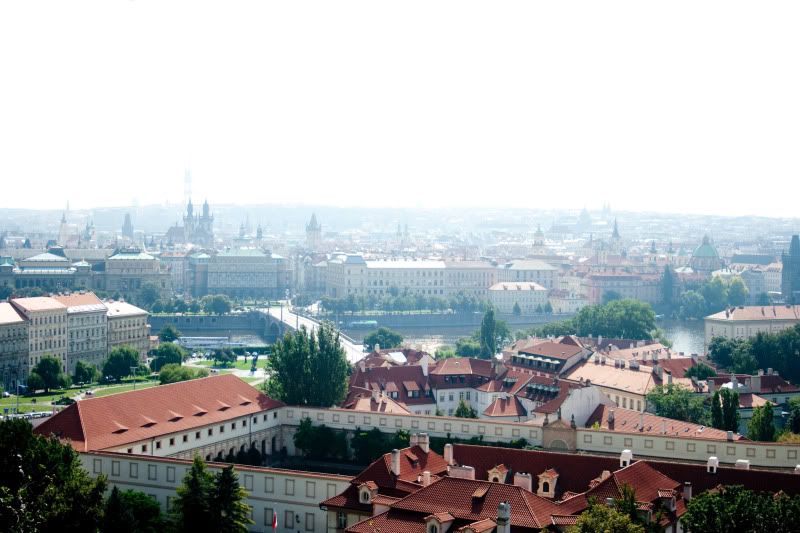 Prague from the castle
Prague from the castle 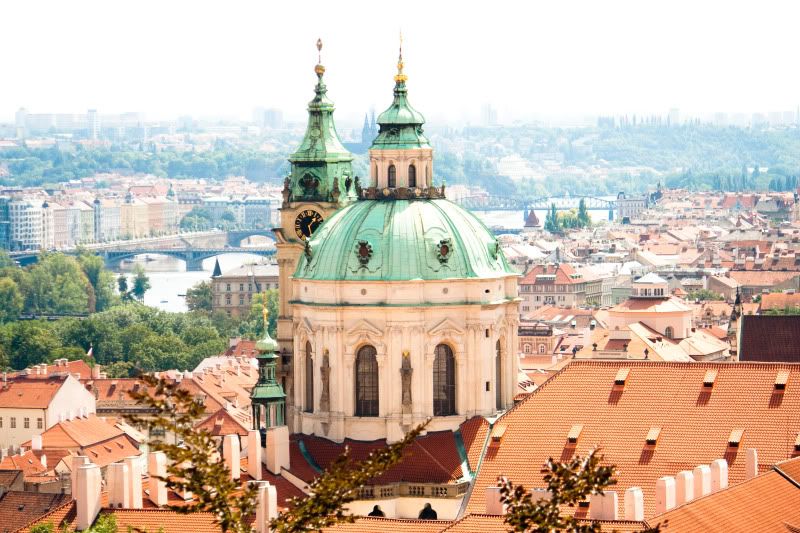 The dome of St. Nicholas
The dome of St. Nicholas 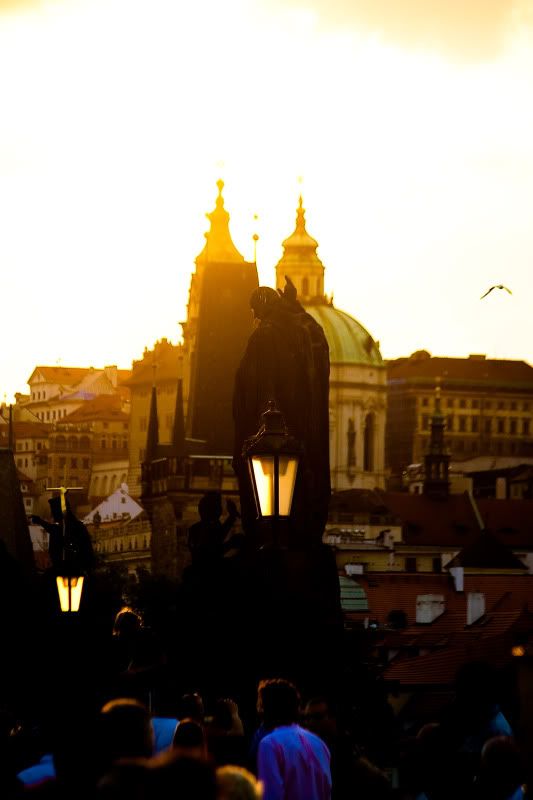
 One of the streets in the old town square, Czech
One of the streets in the old town square, Czech 
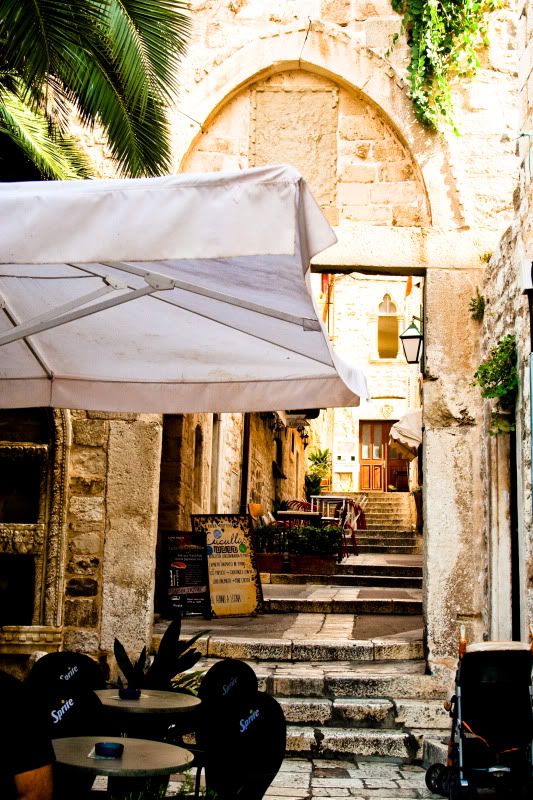
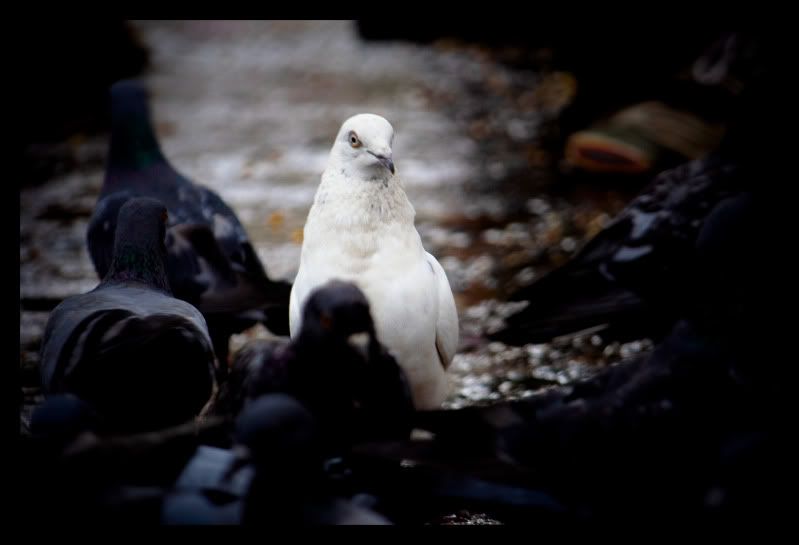 The white one among the black sheep
The white one among the black sheep 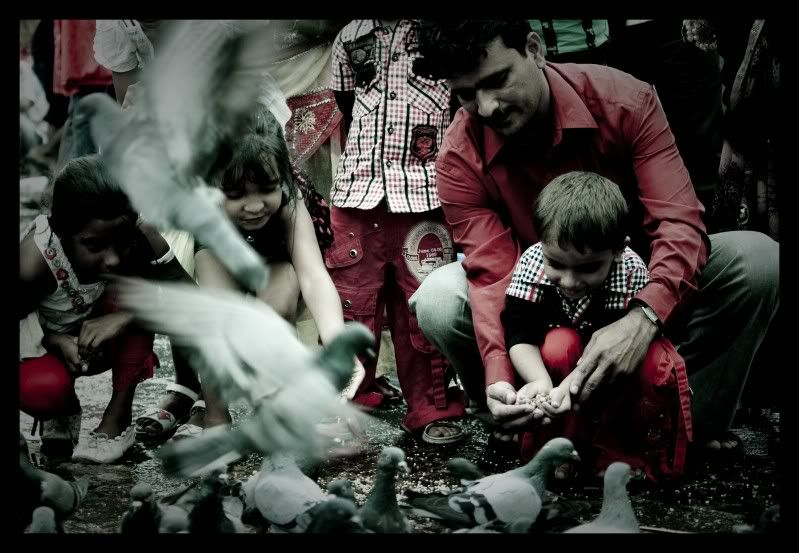 Father and son trying to feed the birds
Father and son trying to feed the birds 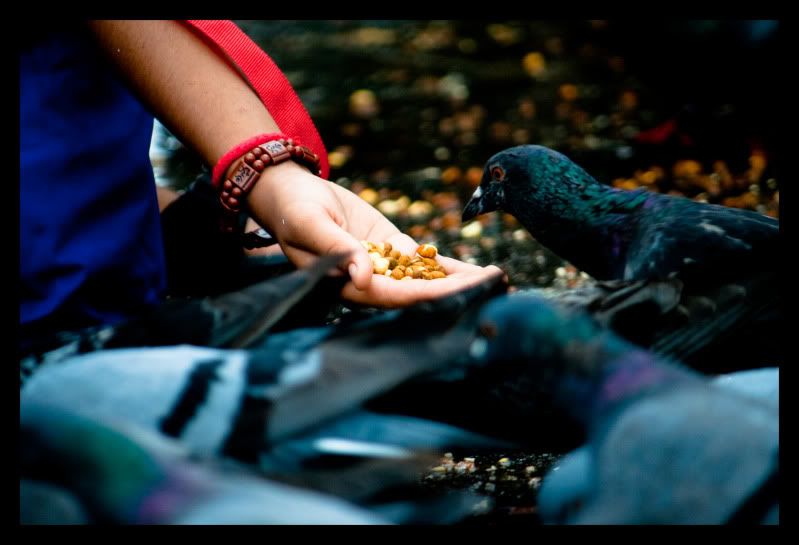 Greedy pigs pecking of from people's hands
Greedy pigs pecking of from people's hands 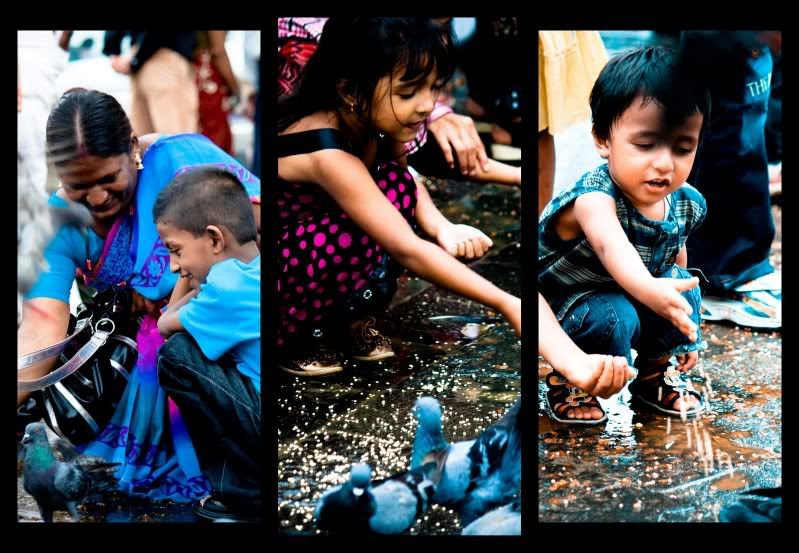 Excited kids!
Excited kids!  Caught by the rain in the not so distant past, Singapore
Caught by the rain in the not so distant past, Singapore 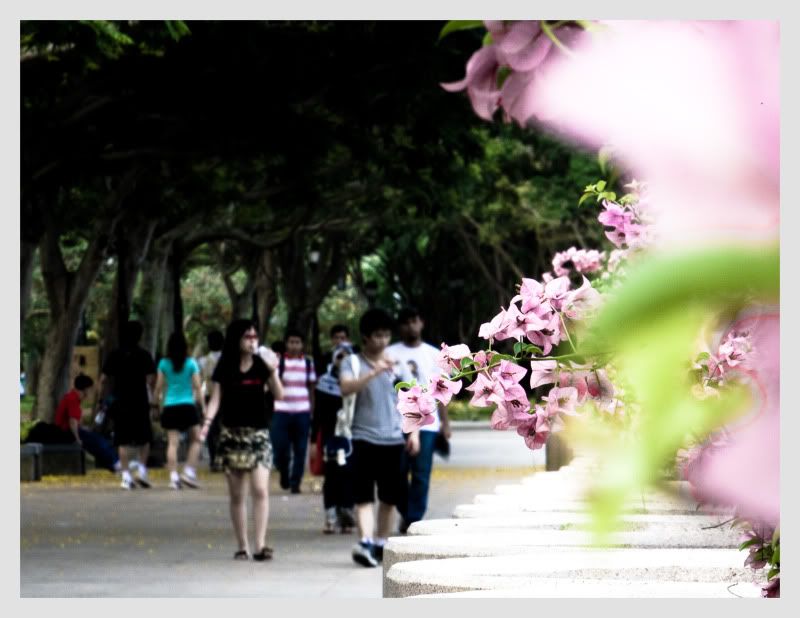 Beautiful bougainvilleas at the Esplanade park...
Beautiful bougainvilleas at the Esplanade park... 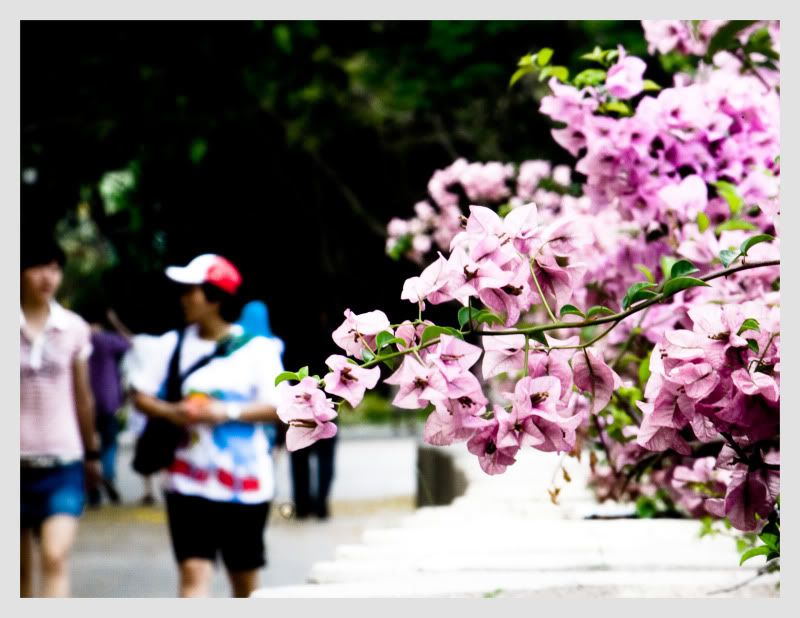 ... were a refreshing treat even as my legs sought some rest
... were a refreshing treat even as my legs sought some rest 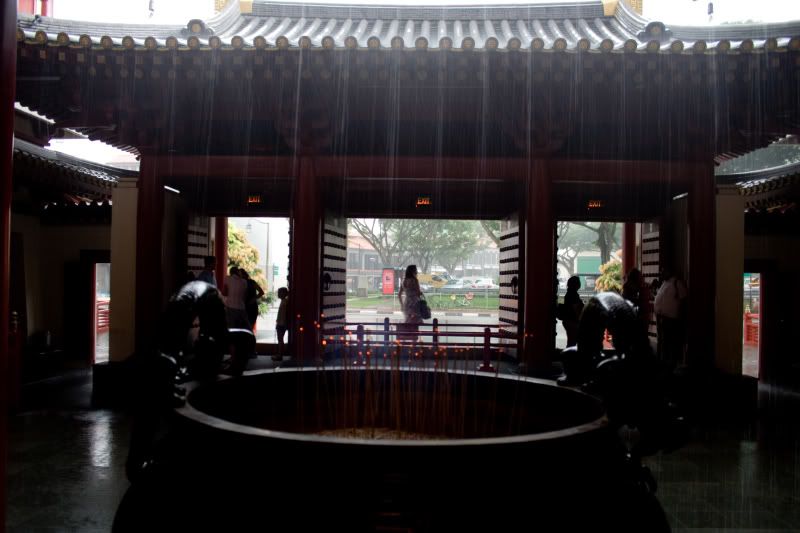 The courtyard at the entrance of the Tooth relic temple - yes, it was raining again!
The courtyard at the entrance of the Tooth relic temple - yes, it was raining again!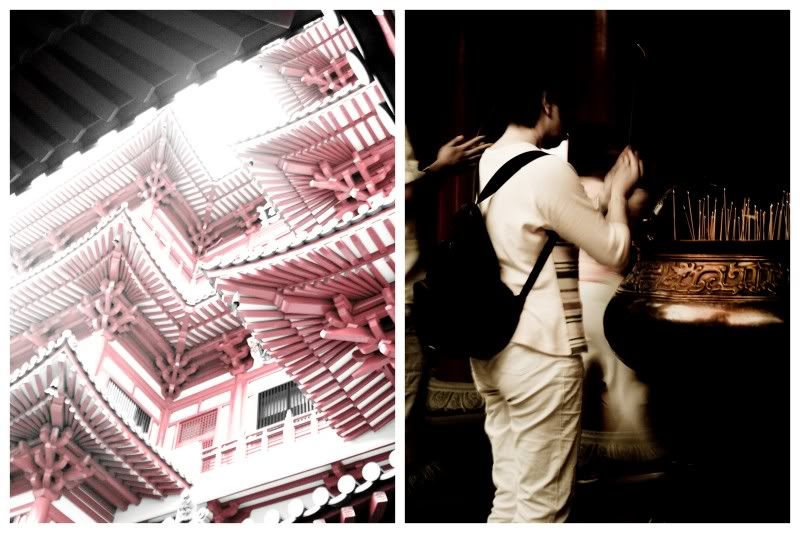 A lady lighting an incense stick in offering
A lady lighting an incense stick in offering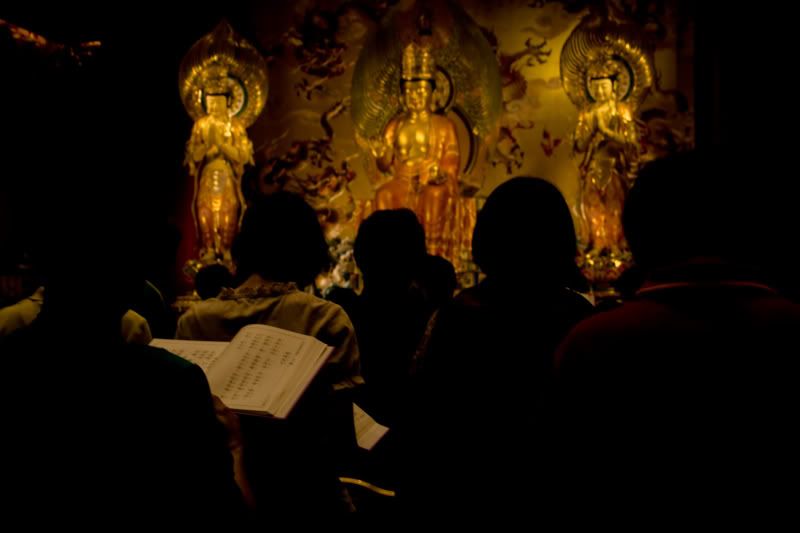 People singing together
People singing together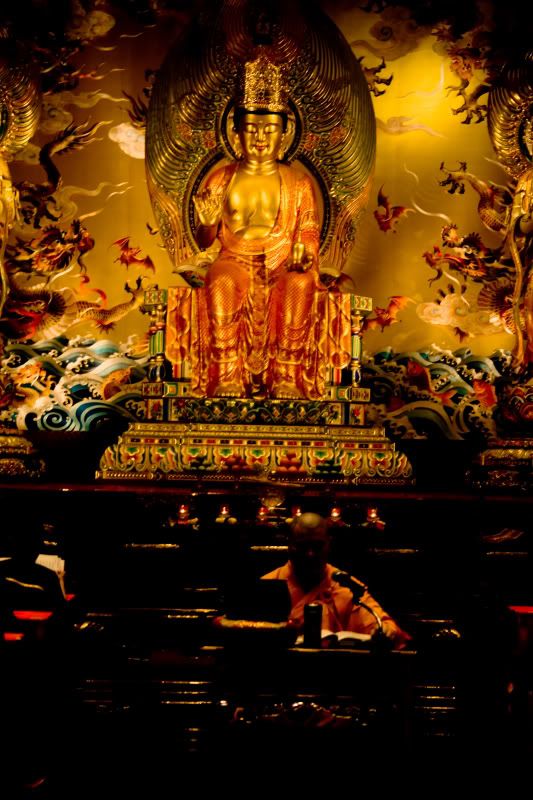 The Maitreya in all his glory
The Maitreya in all his glory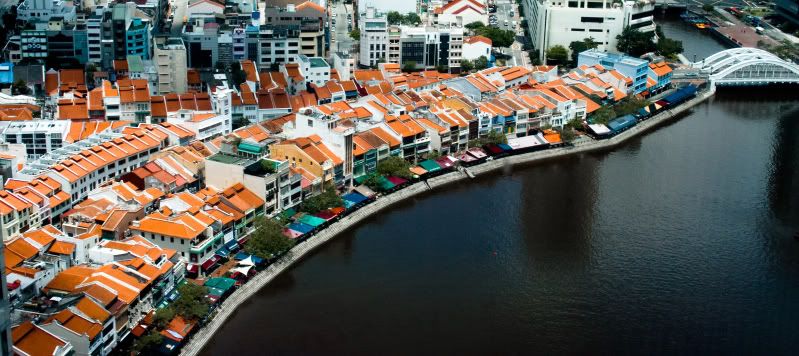 Boat Quay along the Singapore river from 34th floor, Battery Road
Boat Quay along the Singapore river from 34th floor, Battery Road The bright orange and brown brick tile roofs
The bright orange and brown brick tile roofs Singapore sprawled beneath a cloud laden sky - yea, it was going to rain!
Singapore sprawled beneath a cloud laden sky - yea, it was going to rain! A girl seated on one of the sculptures found along the Boat Quay
A girl seated on one of the sculptures found along the Boat Quay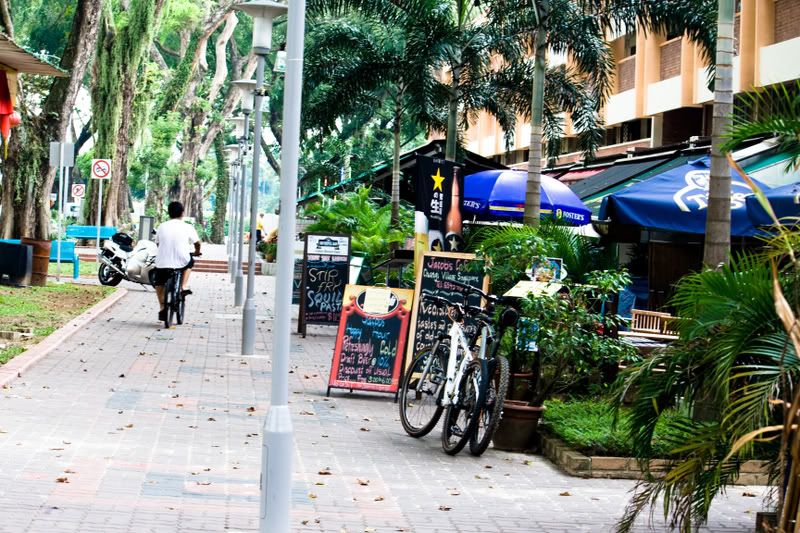 Sleepy sidewalk in Changi Village
Sleepy sidewalk in Changi Village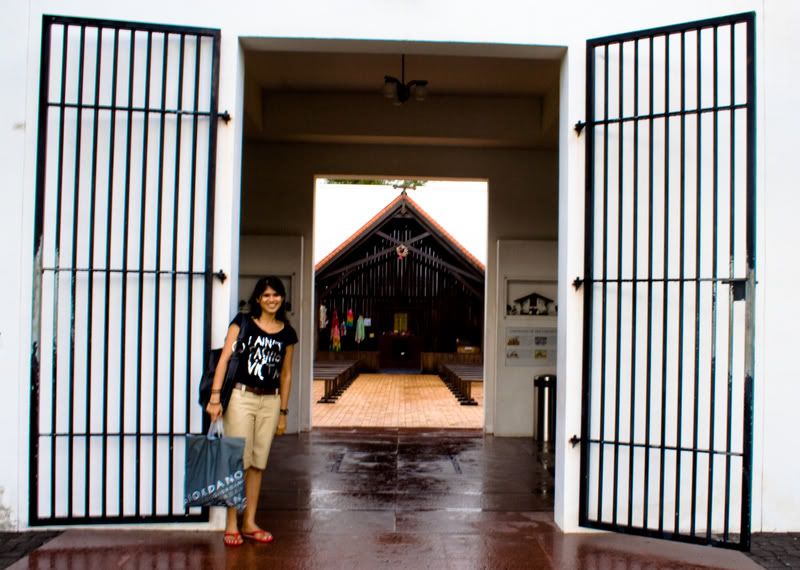 Outside the changi chapel
Outside the changi chapel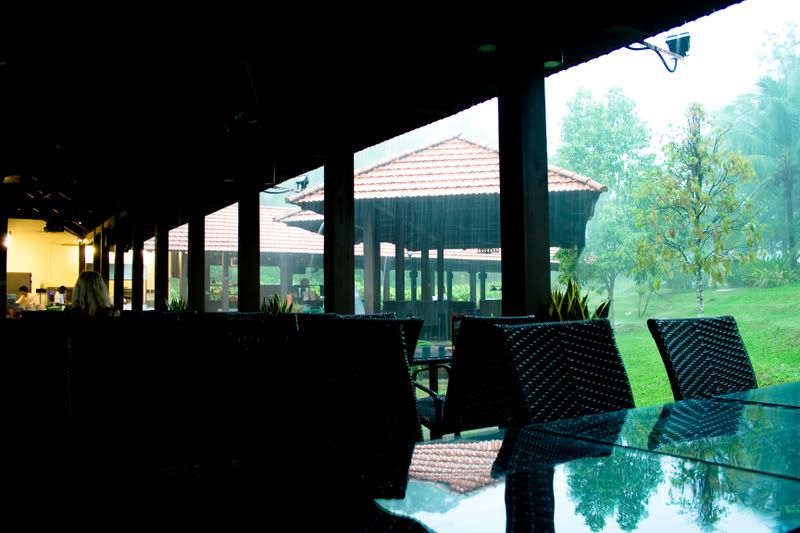 Stranded in the Bark Cafe
Stranded in the Bark Cafe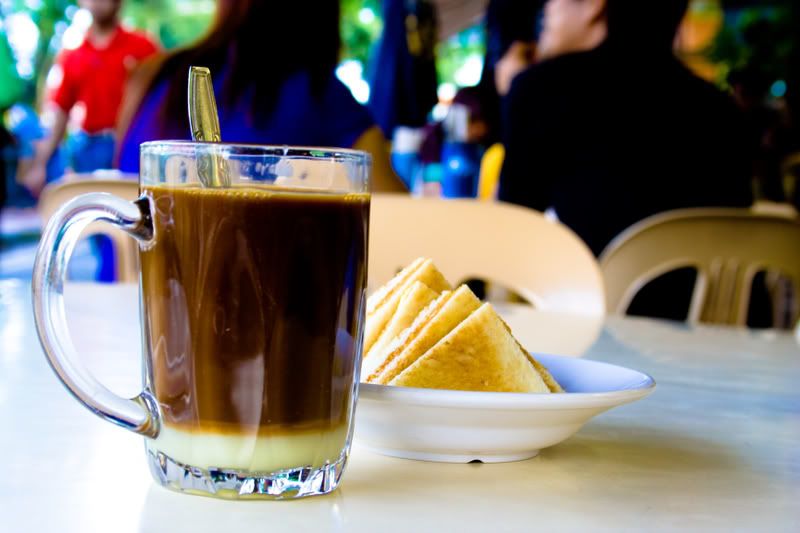 Kopi and Kaya Toast
Kopi and Kaya Toast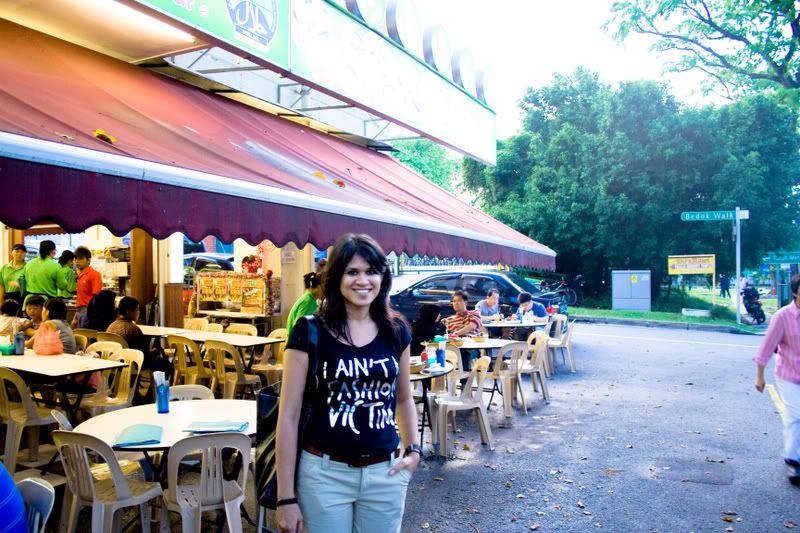 Me in Tang Tea House
Me in Tang Tea House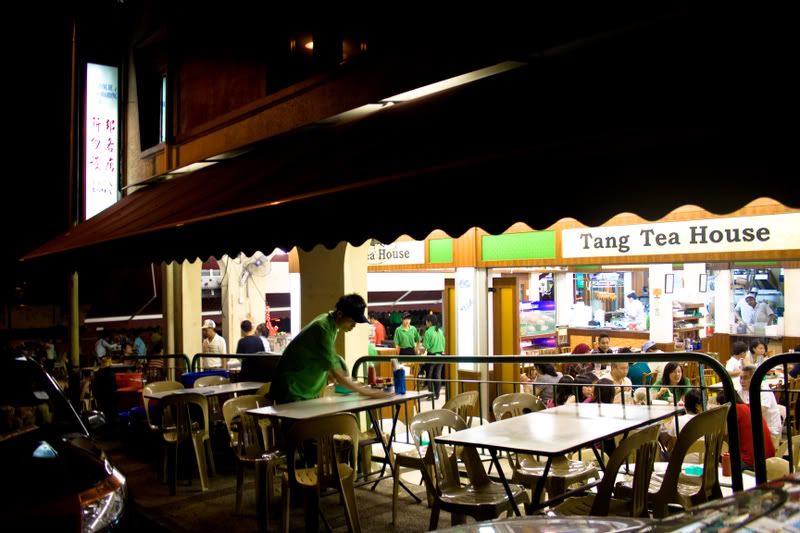 Tang Tea House
Tang Tea House A T-shirt hanging in a shop in China Town
A T-shirt hanging in a shop in China Town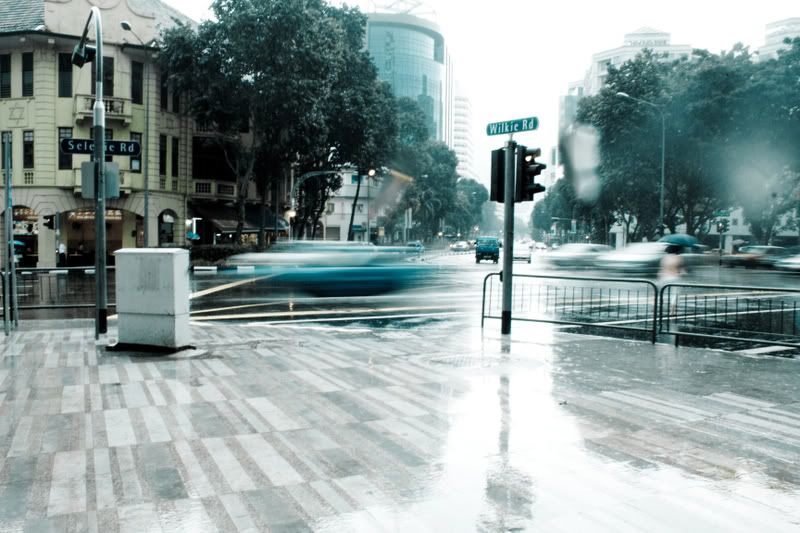 A rainy afternoon greets me on day one at Singapore. The smudges on the right are probably rain drops on my lens. Not a great pic, but doesn't look too bad in this size!
A rainy afternoon greets me on day one at Singapore. The smudges on the right are probably rain drops on my lens. Not a great pic, but doesn't look too bad in this size! 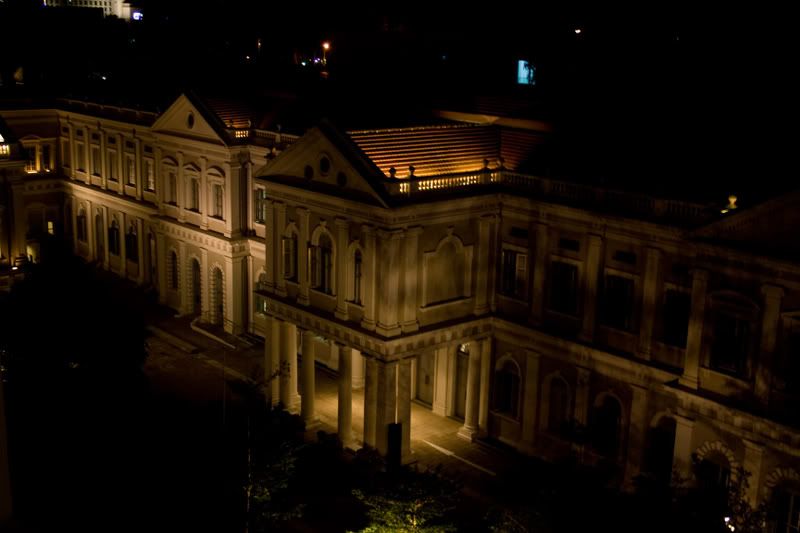 The Singapore Museum of History from my room window
The Singapore Museum of History from my room window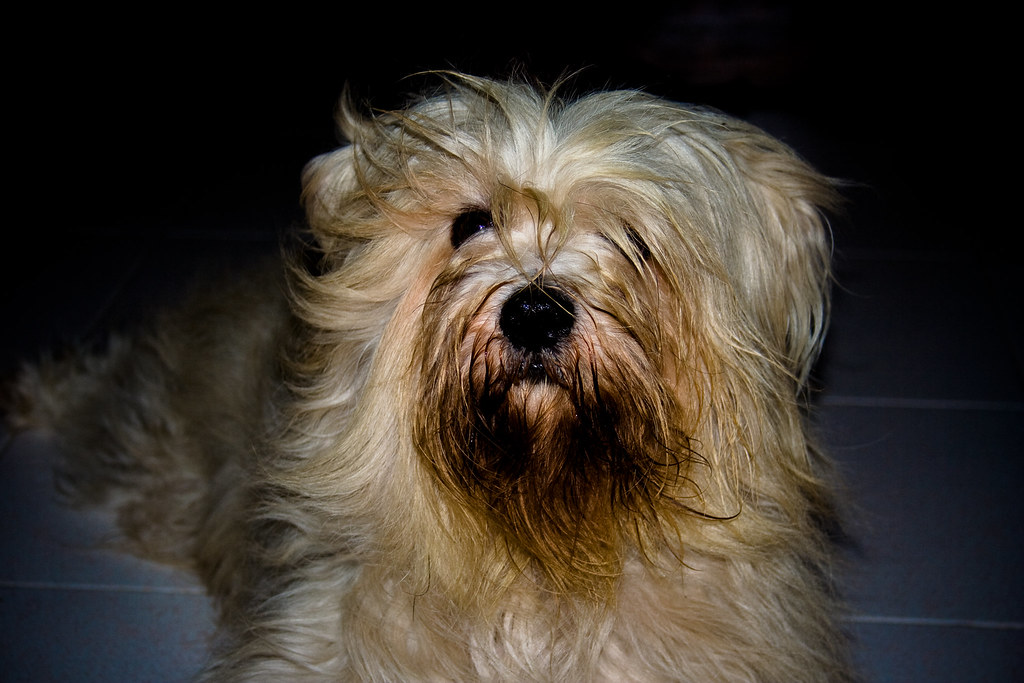 Darling Tipu
Darling Tipu Tipu looking out of the car on his way to his walk
Tipu looking out of the car on his way to his walk